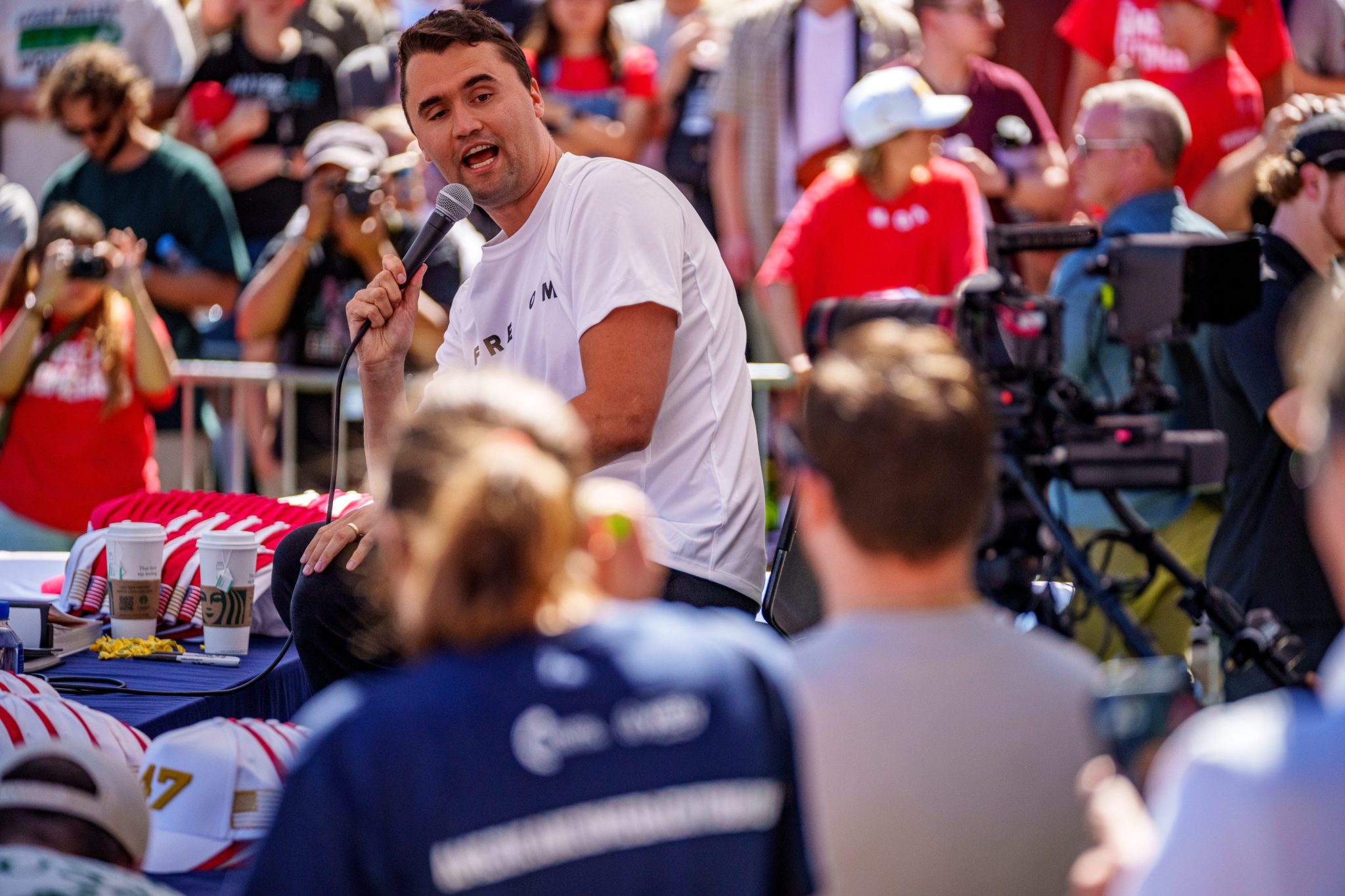 PRESIDENT Ferdinand R. Marcos, Jr. leads the wreath-laying ceremony at the monument of his father, Ferdinand E. Marcos, Sr., in commemoration of the 108th birth anniversary of the former President in Batac, Ilocos Norte, Sept. 11. — PHILIPPINE STAR/NOEL B. PABALATE
PRESIDENT Ferdinand R. Marcos, Jr. leads the wreath-laying ceremony at the monument of his father, Ferdinand E. Marcos, Sr., in commemoration of the 108th birth anniversary of the former President in Batac, Ilocos Norte, Sept. 11. — PHILIPPINE STAR/NOEL B. PABALATEBy Norman P. Aquino, Special Reports Editor and Kenneth Christiane L. Basilio, Reporter
PHILIPPINE PRESIDENT Ferdinand R. Marcos, Jr.’s campaign targeting corruption in flood control projects could boost his credibility with voters and investors but risks straining political alliances, analysts said.
The President, whose family remains linked in the public mind to the massive corruption of his late father’s administration, said he was deeply troubled by reports of anomalies in flood mitigation projects. Appearing emotional in a podcast at the weekend, Mr. Marcos said he had “sleepless nights” over the issue.
 The drive began with warnings in his July State of the Nation Address, when he singled out companies that allegedly benefited from dike and river wall contracts. Since then, the President has ordered lifestyle checks on officials, conducted surprise inspections of projects and created an independent body to pursue cases.
The drive began with warnings in his July State of the Nation Address, when he singled out companies that allegedly benefited from dike and river wall contracts. Since then, the President has ordered lifestyle checks on officials, conducted surprise inspections of projects and created an independent body to pursue cases.
Mr. Marcos also said there’s no need to include flood control projects in the 2026 national budget, adding that the P350-billion funding for these projects this year could be rolled over to next year.
Financial markets have been unaffected so far, though Mr. Marcos’ threat of not signing a General Appropriations bill that significantly departs from the national expenditure program risks hurting the economy and derailing the Philippine transition to a higher income tier.
“President Marcos’ anti-graft campaign will only reshape his image and legacy if he demonstrates genuine resolve,” Ederson DT. Tapia, a political science professor at the University of Makati, said in a Facebook Messenger chat.
“It depends on how far he is willing to see this through. If he ensures that cases are filed and pursued against those responsible, regardless of political connections, this could mark a turning point in how his presidency is remembered,” he added.
Corruption has long dogged the Philippines, shaping its political and economic landscape for decades. It cuts across national and local governments, with scandals often involving infrastructure projects, public procurement, and patronage-driven politics.
The late president stole as much as $10 billion (P503 billion) from the Filipino people, according to government estimates, earning him a Guinness World Record for the “greatest robbery of a government.”
Most Filipino executives remain confident about their industry outlook for the next 12 months but remain dissatisfied with the government’s handling of corruption, according to a survey by PwC Philippines and the Management Association of the Philippines (MAP) released this week. Only 9% of respondents said the government was doing well in fighting graft.
Mr. Marcos’ trust rating climbed 10 points to 48% in June from a month earlier, according to the Social Weather Stations.
“If heads will roll, charges filed and the entire campaign ending up with politicians and bureaucrats alike being removed from government, then it will certainly be the great redemption arc for his family and legacy,” Anthony Lawrence A. Borja, an associate political science professor at De La Salle University in Manila, told BusinessWorld in a Facebook Messenger chat. “If not, then it will be dismissed as petty partisan politicking peppered with controversy and grandstanding.”
The anti-graft campaign has reached Congress, where lawmakers have traded accusations over kickbacks from public works projects. At a House of Representatives hearing on Tuesday, a former district engineer accused Senators Jose “Jinggoy” P. Estrada and Emmanuel Joel J. Villanueva of benefiting from flood control contracts. Both denied the charges.
On Monday, a contractor testified in the Senate that Speaker Ferdinand Martin G. Romualdez — the President’s cousin — and other allies were involved in questionable projects. Mr. Romualdez and other legislators rejected the claims.
The controversy has already led to the resignation of the Public Works secretary and a leadership change in the Senate, where Vicente C. Sotto III replaced Francis G. Escudero as president of the chamber. Mr. Escudero acknowledged receiving campaign donations from a contractor but denied influencing contract awards.
Political analysts said Mr. Marcos’ anti-corruption drive risks fragmentation within his alliance if more people from his political coalition get tangled in the bogus flood control projects.
“It is certainly a risk and if he navigates through it (allowing some to be spared), then the rest of his legislative agenda might remain intact,” Mr. Borja said. “If not, then he still has the option of turning populist and pitting himself against everyone tied to this flood control controversy.”
‘NOT JUST A SLOGAN’
Arjan P. Aguirre, who teaches political science at the Ateneo de Manila University, said the President’s anti-corruption drive “unfortunately is being done haphazardly or carelessly.”
“The Marcos government seems to have singled out the flood control issue perhaps as a way to get back at those lawmakers who may be betraying them or not delivering in terms of handling the impeachment trial in the Senate,” he said via Messenger chat.
“As we are witnessing now, the issue seems to have backfired on them since even their allies in the House are now being implicated by those flood control contractors,” he added.
Mr. Marcos is in the second half of his single, six-year term and is hard-pressed to pick his successor. His anointed one’s biggest rival will be Vice-President Sara Duterte-Carpio, who escaped an impeachment trial after the Supreme Court junked the case on a technicality.
With past corruption allegations still hanging over the Marcos name, Filipinos probably don’t trust the sincerity of his campaign.
“His supporters trust him, but everyone else does not at this point, and they would probably focus their support for those on the ground — the senators and representatives who are conducting the investigations,” Mr. Borja said.
Mr. Marcos is the last one to benefit from all this, at least in terms of political capital and support, he pointed out.
“It takes concrete results, ranging from reforming the bureaucracy behind public infrastructure to politicians ending up in jail before his legacy and his family’s image would benefit from the anti-corruption campaign,” he said. “Also, his sister Imee Marcos being on the other side of the fence while Speaker Romualdez is being dragged into the fray is not helping his cause.”
Mr. Tapia noted that by targeting figures linked to anomalous flood control deals, the President could trigger fragmentation within his own alliance. “Much of his coalition rests on delicate power-sharing, and pushing too hard against entrenched interests might weaken his grip in the second half of his term.”
The President should not limit his anti-graft drive to flood control projects so he doesn’t get accused of having a “half-hearted disposition” on corruption, Mr. Aguirre said.
“Public trust remains his biggest hurdle,” Mr. Tapia said. “With past plunder allegations still tied to the Marcos name, many Filipinos will view this campaign with skepticism.”
“To bridge the gap, he must show that this is not just a slogan or selective justice, but a sustained effort applied consistently across the board. Only then can he turn an anti-graft drive into a genuine legacy,” he added.

 3 hours ago
1
3 hours ago
1
















 English (US) ·
English (US) ·